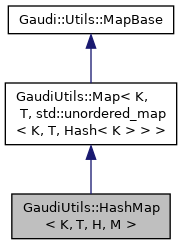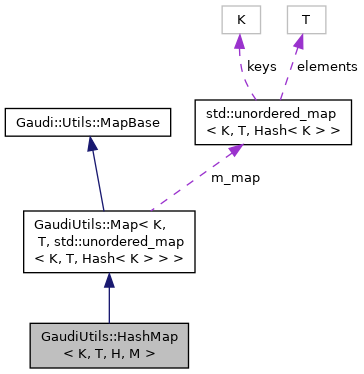 |
The Gaudi Framework
master (3415b466)
|
 |
The Gaudi Framework
master (3415b466)
|
Common class providing an architecture-independent hash map. More...
#include <GaudiKernel/HashMap.h>


Public Types | |
| typedef H | hasher |
Public Member Functions | |
| hasher | hash_funct () const |
Friends | |
| std::ostream & | operator<< (std::ostream &s, const GaudiUtils::HashMap< K, T, H, M > &m) |
| Serialize a GaudiUtils::HashMap in a python like format. | |
Common class providing an architecture-independent hash map.
Due to helper base class Gaudi::Utils::MapBase, this class is "python-friendly", and one can perform all python manipulaitons in intuitive way:
setitem and getitem methods in python: In a similar way delitem methods can be redefined.
| typedef H GaudiUtils::HashMap< K, T, H, M >::hasher |
|
inline |
Definition at line 83 of file HashMap.h.
|
friend |
Serialize a GaudiUtils::HashMap in a python like format.
E.g. "{a: 1, b: 2}". This implementation is not efficient, but very simple. Anyway a print-out of a hash map is not something that we do every second.
Definition at line 88 of file HashMap.h.